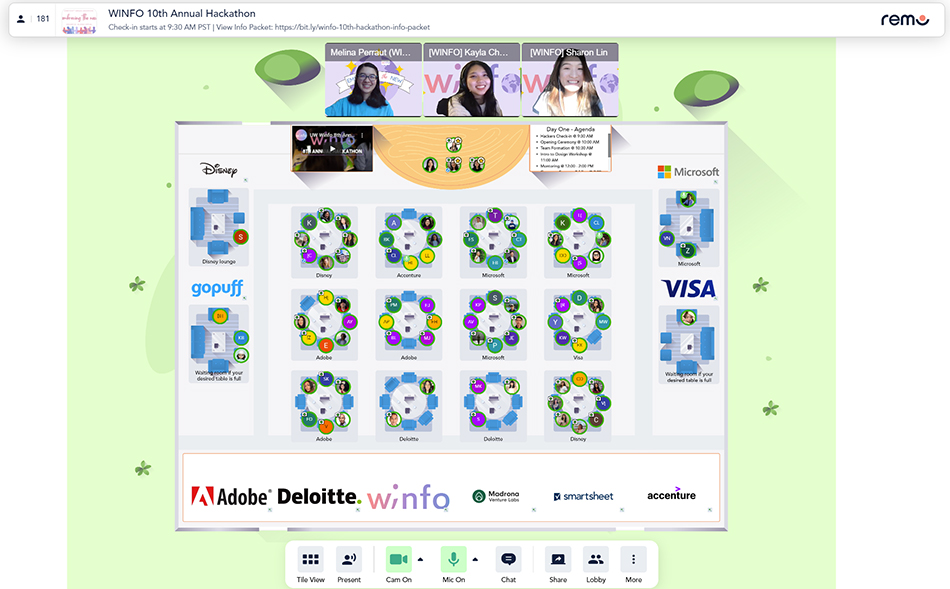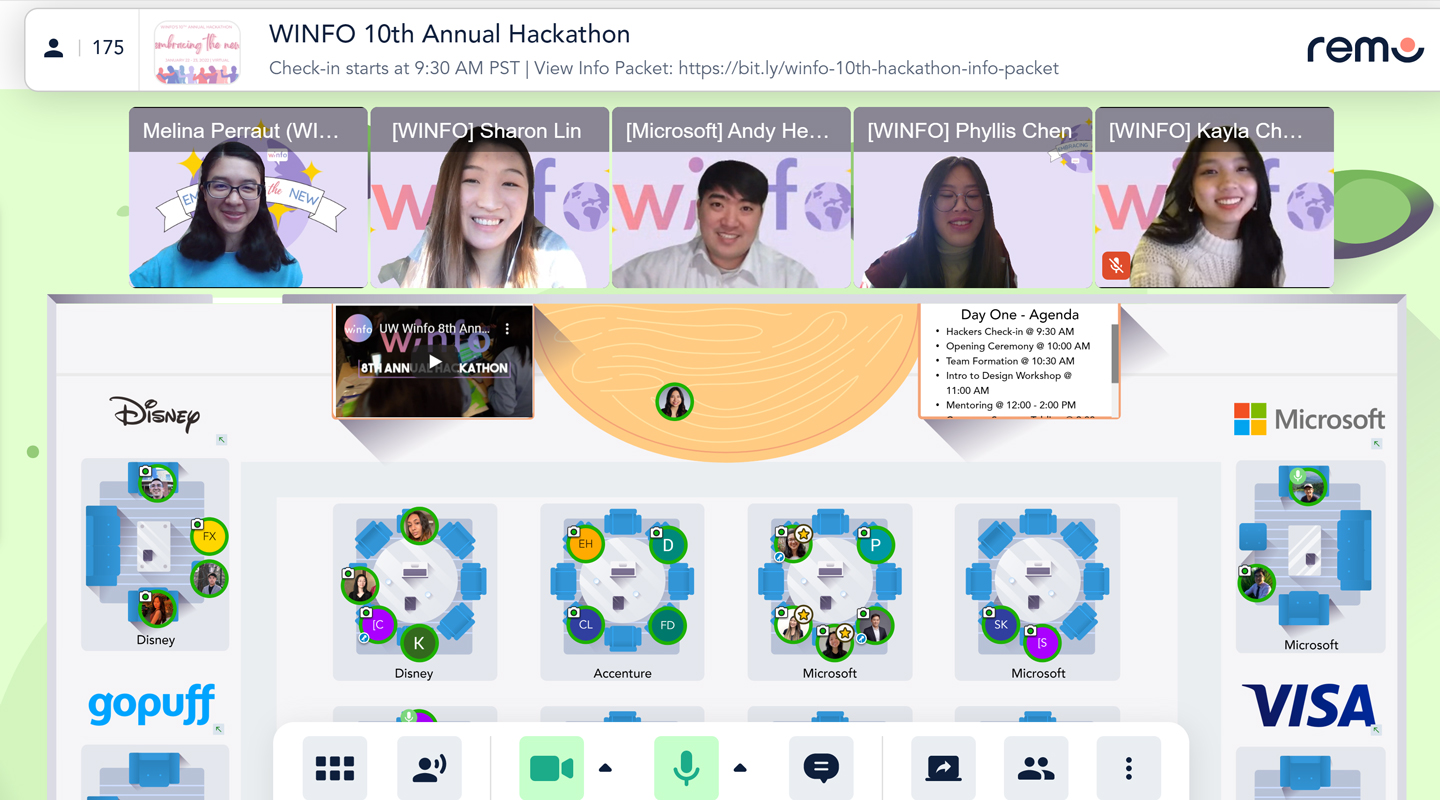Women in Informatics (Winfo), a student-run organization in the Information School, recently welcomed more than 200 students from across the University of Washington to its 10th annual hackathon. This year’s theme of “Embracing the New” inspired a record number of 59 project submissions.
“We were hopeful that we would be able to host the hackathon in person this year, since last quarter was in person,” said Melina Perraut, Winfo’s director of outreach. “But with the rise of Omicron cases and UW’s decision to go online for the start of winter quarter, we made the difficult decision to move it online.”
According to the team, the quick adjustment very much resonated with the theme of the hackathon. Emiri Nishizawa, head of Winfo’s Hackathon Committee, said the decision to host the event on Remo, an online meeting platform, was made just a month before the Jan. 22-23 event.
Annually Winfo’s biggest event, the hackathon’s aim is to provide students with an opportunity to learn about tech, work on projects that address a wide array of social issues, and network with the sponsoring organizations, all while honing their designing and coding skills.
Before the event, Perraut said the theme resonated because so many people had to adapt to hybrid or online modes of working and learning. “And hopefully [participants] will develop some really cool solutions and designs that build upon the unique situation this year,” she said.
Winfo designed the hackathon to be inviting to students who are new to the UW and to the discipline. Participants pick up transferable skills such as teamwork and work on a creative project that looks good on a resume.
This year, organizers introduced a design workshop for students who might be new to hackathons, to give them an introduction to design and prototyping for such competitions.
The team had more confidence going into its second online hackathon, since a lot of the systems — such as those for submitting projects and technical support — were already in place. Sponsors were supportive of the decision to move online, and with a few changes in place, the event went smoothly.

The hackathon’s agenda included time for participants to receive feedback and mentorship that helped them improve the projects they submitted.
“One big takeaway that I hope participants go home with is gaining confidence in tech,” said Sharon Lin, Winfo’s hackathon director. “Because that is what this hackathon is really about — empowering people in tech and also giving them the opportunity to explore their interests in tech.”
Bandhna Bedi, a first-time hacker and first-year student, described her team as coming from a variety of backgrounds. In addition to prospective Informatics majors, her team brought together students from the School of Public Health as well as the Foster School of Business.
“This year’s theme is just perfect for the time,” Bedi said. “Being able to reflect on how we have changed as a society and changed as humans for the better has helped us work on an app that addresses all kinds of pandemic precautions and how people can take them on campus.”
Lucy Lin was also a first-time hackathon participant. Her take on the event consisted of words such as “fun,” “challenging” and “rewarding.” Just like Bedi’s, Lin’s team found it especially valuable to speak to industry mentors and get their guidance on their projects.
The opening ceremony brought iSchool Dean Anind K. Dey onto the virtual stage. Professor Amy J. Ko, Informatics program chair, closed the event. Accenture, Adobe, Disney, Smartsheet, Madrona Venture Labs, Microsoft, Deloitte, GoPuff and Visa were this year’s sponsors.
Three winning teams were awarded prizes, judged by iSchool faculty. Sierra Lee, Qiubei Li, Emma Pennington and Nancy Wu won the Best Design award for “PocketShrink,” their idea for a smart ML-powered journaling app that analyzes a person’s mood and thoughts and connects them to compatible therapists with relevant specialties.
Li-Neishin Co, Kianna Bolante, Keya Kedakia and Emily Du won the award for Best Impact for their project “SoundScape,” their idea for an online extension tool that enhances the gaming experience for users with hearing impairments.
“Babble,” created by Alyssa Marcus, Trinity Martinez and Stephanie Wang, won the Best Overall award. The idea for “Babble” is an application that targets decreasing mental health and social interaction in children ages 6-11.
